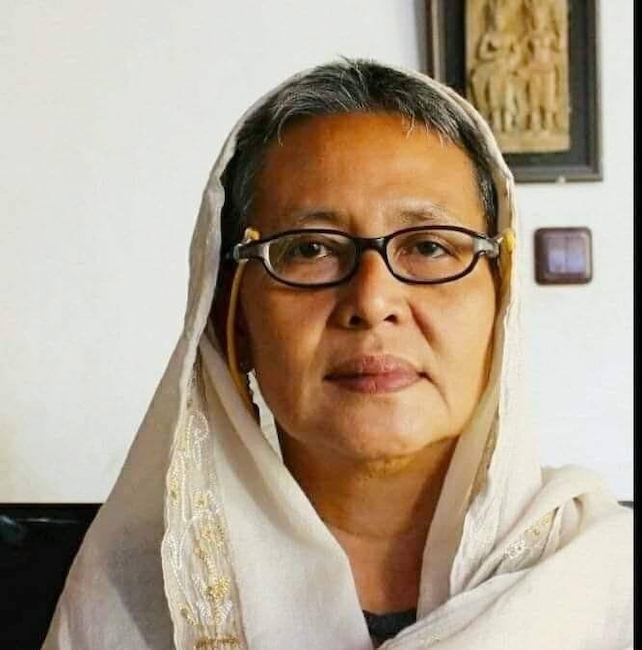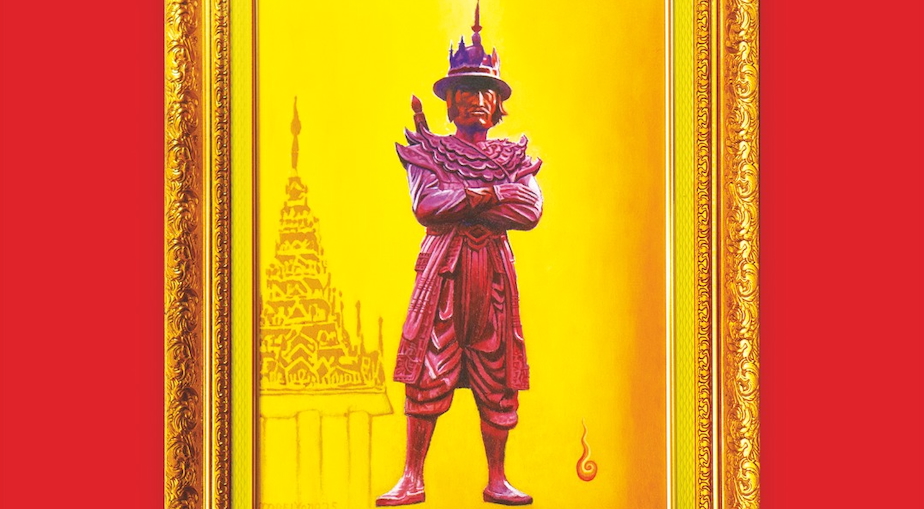An Indonesian who extended solidarity to Timor-Leste since the struggle for independence
During the struggle against the Suharto regime, the Indonesian pro-democracy movement and the Timor-Leste independence movement developed a strategy that activists likened to ‘one boat with separate destinies’: democracy in Indonesia and independence for Timor-Leste. After Suharto fell and these objectives were achieved, the close collaboration between the two movements waned. But, Indonesian activist Titi Irawati Supardi, also known as TI, was an exception.
When the Timorese rights organisation, Yayasan HAK, invited her to support the independence referendum campaign in East Timor in 1999, Titi participated without hesitation despite the risk to her safety. After independence in Timor-Leste, Titi supported the nation’s reconstruction. She moved to Timor-Leste in June 1999 and lived there until she passed away at Guido Valadares National Hospital on 4 October 2024. Her steadfast commitment to Timor-Leste made her become viewed as a buibere (Timorese woman).
Titi was born in Yogyakarta on 16 October 1955. A year after starting her studies at the Faculty of Psychology of Gadjah Mada University, Yogyakarta, she joined the anti-Suharto movement. She was part of the Indonesian National Student Movement (Gerakan Mahasiswa Nasional Indonesia, GMNI). In 1978, when the Indonesian armed forces clamped down on student activities on campuses, Titi was forced to go into hiding.
After attaining her psychology degree in 1983, Titi moved to Jakarta to pursue a career in journalism, working at the women’s magazine Sarinah until 1995. While in Jakarta, she remained active in opposing the New Order regime. As a journalist, and with the political consciousness and activist spirit she had developed at university, Titi connected with non-governmental organisations (NGOs) fighting the Suharto dictatorship. These NGOs included women’s organisation Kalyanamitra, consumer rights group, Yayasan Lembaga Konsumen Indonesia, the Indonesian Forum for the Environment (Wahana Lingkungan Hidup Indonesia, Walhi), and the Indonesian Legal Aid Foundation (Yayasan Lembaga Bantuan Hukum Indonesia, YLBHI), and its Jakarta office, LBH Jakarta. She later joined the Indonesian Institute for the Study of the Free Flow of Information (ISAI), the organisation set up in response to the regime’s banning of news magazines Tempo, Detik, and Editor in 1994. In addition to her journalistic work, Titi volunteered with these organisations, contributing to the struggle against the regime and the pursuit of democratisation.
Titi’s involvement in the movement against Suharto led to her being exposed to the Indonesian military’s human rights violations against East Timorese people and their struggle for liberation. Many Indonesians were unaware of these abuses because access to the ‘Province of East Timor’ was controlled by the security forces and government, and the media was prevented from reporting freely. Titi learned of the 1991 Santa Cruz Massacre through photographs shown to her by a foreign journalist.
As an Indonesian citizen, Titi was aware that the preamble to the original 1945 Constitution of the Republic of Indonesia explicitly stated that independence was the right of all peoples. Her awareness of the atrocities against the Timorese people and their right to self-determination prompted her to volunteer with the Joint Committee for the Defence of East Timor, which was established by several Indonesian organisations after the Santa Cruz Massacre.
With the Joint Committee for the Defence of East Timor, Titi provided support to East Timorese political prisoners, monitored the conditions of East Timorese students studying in Indonesia, and offered logistical support when East Timorese people demonstrated for their right to self-determination and independence. When the National Liberation Armed Forces of East Timor (Falintil) Commander (and current Prime Minister of Timor-Leste) Xanana Gusmão broke his arm playing football in Cipinang Prison in Jakarta, Titi found someone to treat him at St Carolus Hospital. She often arranged meetings between political prisoners and journalists and human rights activists, including those from other countries, such as the Netherlands, England, and Japan, who could not visit prisons without Ministry of Justice permission. Among these activists were Kerry Brogan from Amnesty International and Takashi Suzuki from the Japan Coalition for East Timor.
As ISAI’s training coordinator, Titi asked Gusmão about how she could best contribute to the Timor-Leste independence movement. He requested help in training Timor-Leste journalists. This journalist training eventually led to the establishment of the influential Talitakum, a news magazine in the model of Indonesia’s Tempo, published from 1998 to 2005.

After President BJ Habibie announced the two options to deal with East Timor on 27 January 1999, Titi contacted the Secretary General of the Indonesian National Commission on Human Rights (Komnas HAM), Asmara Nababan. Titi asked him to facilitate media training ahead of the independence referendum. The training took place in Dili and included the participation of various East Timorese resistance organisations. After the training, the Dili-based Yayasan HAK asked for ongoing support from the Jakarta-based solidarity organisation Fortilos (Forum Solidaritas untuk Rakyat Timor Lorosae). Titi resigned from ISAI and travelled to Timor-Leste with fellow Indonesian activist Hilmar Farid to assist Yayasan HAK with its advocacy efforts and support persecuted Timorese.
Titi then reached out to various media outlets in Indonesia, including underground media, to tell them about the human rights violations occurring in East Timor. Her writing was published widely in outlets like Tempo, D&R, and Jakarta Post, and she also broadcast on media like Radio 68H in Jakarta and Radio Giga FM in Surabaya. Titi also supported the publication of the newspapers Direito (by Yayasan HAK) and Babadok (by Timorese women’s rights organisation, Fokupers).
After the 30 August referendum, violence by pro-integration militias intensified, with the backing of the Indonesian police and armed forces. This led to a mass exodus from Dili, including the Timorese resistance leadership. During this tumultuous time, Yayasan HAK became the leading organisation disseminating information on human rights abuses. Titi and other activists from Yayasan HAK, Fortilos, and the Volunteers for Humanity Team (Tim Relawan untuk Kemanusiaan) continued their work until pro-integration militia attacked Yayasan HAK’s office with gunfire on 5 September 1999. The shooting lasted four hours until the UN and Indonesian police came to rescue and evacuate them, a rescue that only happened because there were non-East Timorese working there.
After independence, Titi sold her home in Jakarta and lived in Dili, continuing to fight for a strong and independent Timor-Leste. She worked with local NGOs, Yayasan HAK, Fokupers, the Sahe Institute for Liberation, and the East Timorese Commission for Reception, Truth and Reconciliation (Comissão de Acolhimento, Verdade e Reconciliação, CAVR). At CAVR, as an Indonesian, Titi acknowledged the truth about her government’s actions in East Timor and sought to make a positive difference to victims. These actions stood in contrast to her government in Jakarta, which engaged in denial and obfuscation about the human rights abuses it committed.
In 2016, Timor-Leste awarded Titi the Order of Timor-Leste Medal for her contributions to the country, its people, and humanity. Titi developed a deep love for her adopted homeland. Reflecting on her life, the Secretary General of the National Resistance of East Timorese Students (Renetil) and Titi’s former colleague at Yayasan HAK, Joaquim da Fonseca ‘Russo’, said: ‘Although this country was not her birthplace, she embraced Timor-Leste as her own.’
We, the East Timorese people, embraced her as one of our own, too. Her loss is felt by all of us who knew her, and by Timor-Leste itself.
Nuno Rodriguez Tchailoro (nuno.zare@gmail.com) is an East Timorese writer and activist based in Dili, Timor-Leste.












